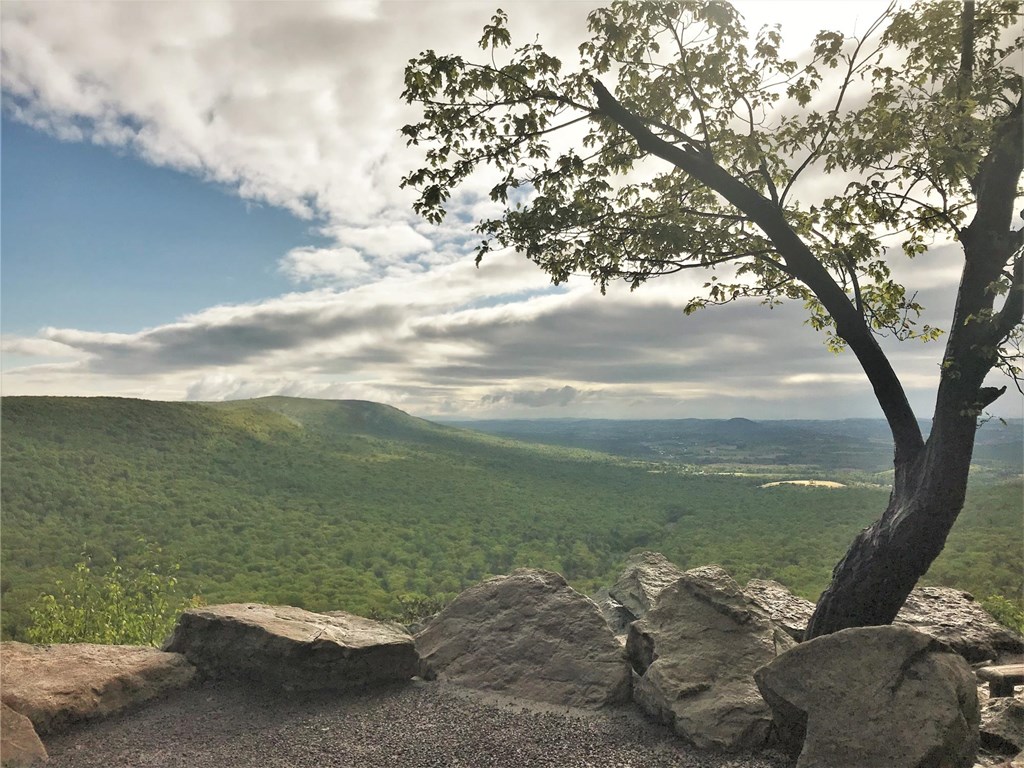Hawk Mountain Sanctuary listed on National Register of Historic Places
Posted on April 20, 2022 in General

On April 8, 2022, the Department of Interior officially listed Hawk Mountain Sanctuary on the National Register of Historic Places, and the Sanctuary was also nominated and approved for its important role in both Conservation and Women’s History. The designation follows more than a decade of work toward this listing, with renewed efforts in 2019 in conjunction with the state historic preservation office.
“Hawk Mountain is significant as the first raptor sanctuary in the world and a leader in the American Conservation Movement of the early 20th Century, when the Sanctuary played an integral role in changing public attitudes toward raptors and securing their permanent legal protection,” said Hawk Mountain President Sean Grace.
“Our unique history and legacy in the conservation movement sets us apart from other organizations, and today we teach others globally how to replicate our successful model,” he adds.
In 1967, Hawk Mountain was designated a National Natural Landmark for its exceptional value in illustrating the natural history of the United States. This latest designation focuses on the historical significance of Hawk Mountain’s role in conservation and women’s history.
After Hawk Mountain Founder Rosalie Edge secured the land, Maurice Broun, the Sanctuary’s first warden, arrived with his wife Irma in 1934 to guard the Sanctuary from shooters and begin to document the migration that could be observed here. Broun quickly emerged as one of the leading ornithologists and conservationists of the time and his publication of migration counts at Hawk Mountain Sanctuary formed the basis for the scientific study and conservation of raptors across the United States.
By the 1980s, Hawk Mountain had become a pioneer and leader in global raptor conservation. It solidified its position in 1993 with the creation of Hawks Aloft Worldwide, a worldwide conservation initiative to amass, analyze, and distribute information on migratory raptors through the creation of an international network of independent local organizations. Findings were published by BirdLife International in RaptorWatch: A global director of raptor migration sites, which includes contributions by more than 800 observers to detail 388 hotspots for raptor migration. The book released in 2000 and was noted as the most geographically complete global reference for hawk migration.
In addition to its scientific contributions, the Sanctuary has also helped to foster and shape the American environmental movement of the late 20th Century, which reached its peak after the publication of Rachel Carson’s Silent Spring in 1962. Carson relied on data from Hawk Mountain that cited a decline in juvenile bald eagle populations to reach her conclusions about the disastrous environmental effects of the pesticide DDT.
“Since the 1980’s we have been leveraging our work through our international trainee program, which has led to collaborative raptor work in 75 countries around the globe. Perhaps more importantly, 50% of our graduates are from diverse backgrounds, and 60% of our graduates are women,” says Grace.
Regarding Women’s History, Hawk Mountain Sanctuary is synonymous with the pioneering conservation work of the Sanctuary’s founder, Rosalie Barrow Edge. Described by Maurice Broun as “the foremost woman conservationist of the 20th Century,” Edge led a crusade to reform the National Association of Audubon Societies and ushered in a new era of environmental activism. Meanwhile, Irma Broun served as the Sanctuary’s first unofficial “gatekeeper” and volunteer, and she played a vital role in protecting Hawk Mountain from sport shooters and developing its reputation as a leader in conservation education.
“We are grateful to the Pennsylvania State Historic Preservation Office, which encouraged consideration of Hawk Mountain for designation as a National Historic Landmark, and the National Park Service, which plans to highlight this National Register designation as a model for other conservation-focused nominations,” Grace says.
He adds, “Hawk Mountain Sanctuary intends to remain a model for science, education, and stewardship while opening the doors of conservation for diverse candidates around the globe. And we will remain an outstanding destination to enjoy the Appalachian ecosystem and take in breathtaking views from the Mountain and of the annual raptor migration.”